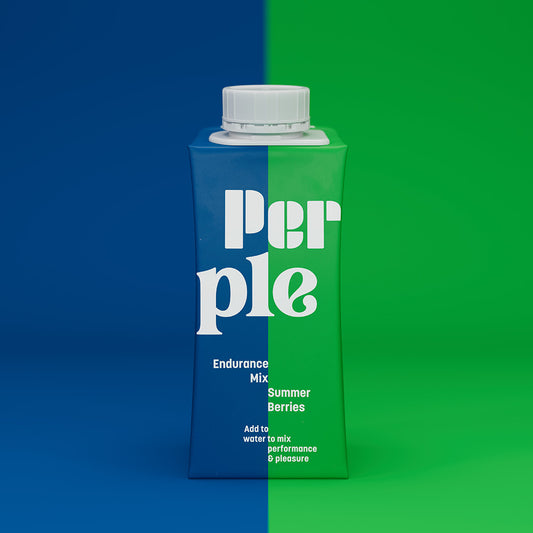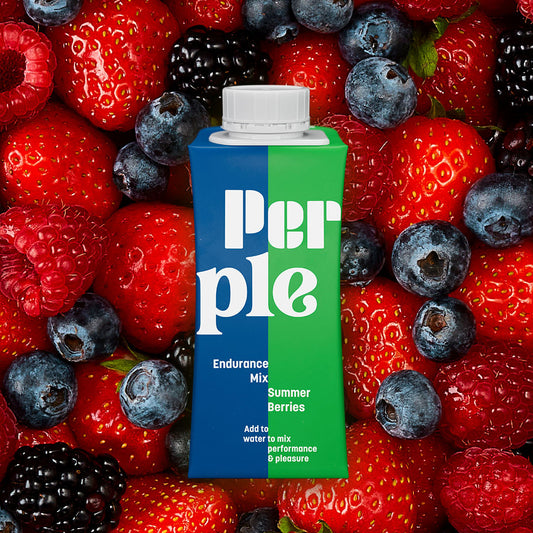Our guide to
Half marathon nutrition
Our guide has been created with Anita Bean, sports nutrition expert
Training runs: early preparation
Practice makes perfect
In the weeks leading up to the event
Made for half marathons
In the days leading up to the event
The day before the event
What to eat on the morning of the race
What to eat 15 – 30 minutes before the start
Nutrition for during the race
Post-race nutrition: optimal recovery
Your race strategy
What are you putting in your body?
Why you should switch to Perple’s Endurance Mix
Developed at

Certified by

















